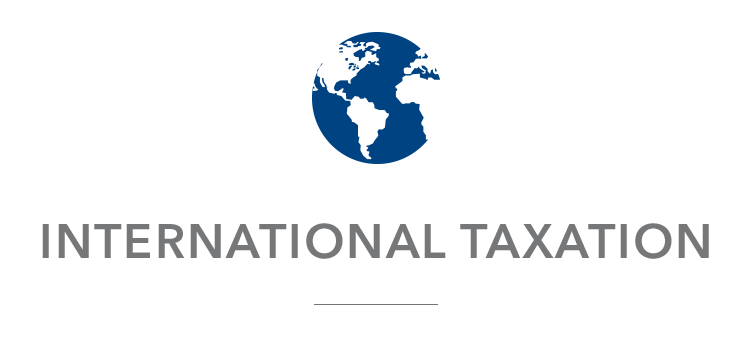e-Filing Service Centre
The Mauritius Revenue Authority (MRA) has made available facilities for approved service centres to file tax returns electronically on behalf of taxpayers.
Recovery of tax
Where tax remains in arrear, the Director General may enforce payment of the tax by the following measures:
- Deduction from emoluments
- Attachment order
- Distress warrant
- Inscription
- Contrainte
- Temporary closure of business
- Prosecution
- Deduction from emoluments
Issue a notice to the employer requiring him to deduct the tax outstanding from the emoluments of the employee owing the tax.
- Attachment order
Attach in the hands of a third party any money owed or payable by him to the taxpayer.
- Distress warrant
Issue a warrant to an Usher of the Supreme Court to recover tax by distress and sale of goods, chattels and effects of the taxpayer.
- Inscription
Inscribe a privilege on all immovable properties of the taxpayer so as to secure the recovery of tax due.
- Contrainte
Apply to a Judge in Chambers for an order to sell the immovable properties of the taxpayer.
- Temporary closure of business
Apply to a District Magistrate for an order to close down part or the whole of the business of the taxpayer for a period not exceeding 14 days.
- Prosecution
International aspects of Taxation
-
Commitments taken by Mauritius to implement tax good governance principles
-
Notice on obligation to furnish information for exchange purpose
-
Commitments taken by Mauritius to implement tax good governance principles
Criterion 1. Transparency
-
Commitment to implement the automatic exchange of information, either by signing the Multilateral Competent Authority Agreement (MCAA) or through bilateral agreements
Mauritius is a signatory to the MCAA and has started to exchange information under the Organisation for Economic Co-operation and Development (OECD) Common Reporting Standard as from 2018.Information is also being exchanged on an automatic basis under Foreign Account Tax Compliance Act (FATCA) with the Internal Revenue Service (IRS) since 5 years.
-
Membership of the Global Forum on transparency and exchange of information for tax purposes and satisfactory rating
Mauritius has been assigned an overall rating of "Compliant" by the Global Forum on Transparency and Exchange of Information for Tax Purposes during the second round of Exchange of Information on Request (EOIR) reviews.
-
Signatory and ratification of the OECD Multilateral Convention on Mutual Administrative Assistance or network of agreements covering all EU Member States
Mauritius has signed and ratified the Multilateral Convention on Mutual Administrative Assistance in Tax Matters in 2015 and has a broad network of Double Taxation Avoidance Agreements and Tax Information Exchange Agreements (56 in all), providing mechanisms for exchange of information with some 140 jurisdictions including all European Union (EU) member States. The Global Forum has in its second round report for Mauritius commended the efforts of Mauritius to expand its exchange of information network.
Criterion 2. Fair Taxation
-
Existence of harmful tax regimes
Nine preferential tax regimes of Mauritius have been assessed by both the OECD Forum on harmful Tax Practices (FHTP) and the EU Code of Conduct Group (COCG).These are:
-
The former Deemed Foreign Tax Credit available to corporations holding a Category 1 Global Business Licence (GBC 1) and Banks on their foreign sourced income;
-
The Captive Insurance regime;
-
The former Category 2 Global Business regime;
-
The Freeport regime;
-
The Global Headquarters Administration regime;
-
The Global Treasury Activities regime;
-
The Investment Banking regime;
-
The Shipping regime; and
-
The innovation-driven activity regime.
Subsequent to the assessments, reforms were brought through the Finance Act 2018 and Finance Act 2019 to those regimes which were found to have potentially harmful features. These are summarised below:
-
abolition of the Deemed Foreign Tax Credit regime and introduction of a new partial exemption system;
-
introduction of a separate tax regime for banks;
-
abolition of the Category 2 Global Business regime;
-
removal of the ring-fencing aspects identified in certain regimes;
-
adoption of enhanced substantial activities requirements that are in line with Annex D of the ‘Harmful Tax Practices 2017 Progress Report on Preferential Regimes’;
-
introduction of the nexus approach for the innovation driven activity regime;
-
adoption of an additional anti-abuse provision in the form of Controlled Foreign Company (CFC) rule; and
-
adoption of clear substance requirements for outsourcing.
Following these reforms, the OECD Forum on Harmful Tax Practices (FHTP) is now satisfied that Mauritius does not have any harmful features in its tax regimes, including in the reformed Freeport regime and the newly introduced partial exemption system and banking regime.
The tax reforms that have recently been implemented fit within the strategy of Mauritius to be recognised as a well-regulated, transparent and compliant jurisdiction.
-
-
Existence of tax regimes that facilitate offshore structures which attract profits without real economic activity
New conditions of substance that meet the FHTP standards were introduced in the Income Tax Act and the Financial Services Act. Moreover, Mauritius has put in place a robust monitoring mechanism to ensure that taxpayers benefitting from preferential regimes meet the substantial activities requirements. The FHTP has concluded at its June 2019 meeting that the monitoring mechanism in place in Mauritius is adequate.
Criterion 3. Anti-BEPS Measures
-
Membership of the Inclusive Framework on BEPS or implementation of BEPS minimum standards
Mauritius joined the Inclusive Framework in November 2017 and has committed to implement the BEPS minimum standard. The status of implementation is as follows:
-
BEPS Action 5:
-
In its 2018 peer review report of the Action 5 transparency framework, the Forum on Harmful Tax Practices (FHTP) has noted that Mauritius has met all aspects of the terms of reference (ToR) for the calendar year 2017 and no recommendations were made; and
-
As stated above, all preferential tax regimes of Mauritius meet the FHTP standards.
-
-
BEPS Action 6:
Mauritius signed the Multilateral Convention (MLI) to implement tax treaty related measures to prevent Base Erosion and Profit Shifting on 05 July 2017 and deposited its instrument of ratification with the Secretary General of the OECD on 18 October 2019. The MLI entered into force for Mauritius on 1 February 2020 and the amendments to the treaties being modified by the MLI will take effect from 01 August 2020 onwards. 44 of our 46 treaties have been listed as Covered Tax Agreements and these treaties as amended will include the minimum standards under the MLI, with the "Principal Purpose Test (PPT)" as the main anti-abuse provision.
- BEPS Action 13
-
Mauritius has signed the Country-by-Country (CbC) MCAA and has passed legislation to enable exchange of country by country reports as from the fiscal year starting 01 July 2018;
-
Positive comments were received in the latest CbC peer review document as regards the putting in place of the domestic and legal framework for CbC reporting;
-
The ‘Guidelines for the Appropriate Use of Information contained in CbC Reports’ was published on the MRA website in January 2019; and
-
The online platform for CbC reporting was launched in July 2019.
-
- BEPS Action 14
The BEPS Action 14 Minimum Standard seeks to improve the resolution of tax-related disputes between jurisdictions. Upon entry into effect of the MLI, existing treaties covered under the MLI will be modified to reflect the positions adopted by each jurisdiction. In this context, the Article dealing with ‘Mutual Agreement Procedures’ (MAP) will be amended to allow a taxpayer to present a case to the competent authority of either Contracting Jurisdiction for mutual agreement assistance.
-
-
-
Abolition of the Deemed Foreign Tax Credit (DFTC) regime
The Deemed Foreign Tax Credit (DFTC) of 80 % available to a company holding a Category 1 Global Business licence or a bank carrying out Segment B banking activities was abolished with effect from 1 January 2019.
Grandfathering rules are however available up to 30 June 2021 to any company issued with a Category 1 Global Business licence prior to 16 October 2017.
These grandfathering rules do not apply to:
-
such intellectual property assets acquired from a related party after 16 October 2017;
-
such intellectual property assets acquired from an unrelated party, or to such newly created intellectual property assets, after 30 June 2018; and
-
income derived from such specific assets acquired, or projects started, after 31 December 2018, as the Director-General may determine.
-
-
Abolition of the Category 2 Global Business licence
The Category 2 Global Business licence regime was abolished with effect from 1 January 2019.
Grandfathering rules are however available up to 30 June 2021 to any company issued with a Category 2 Global Business licence prior to 16 October 2017.
These grandfathering rules do not apply to:
-
such intellectual property assets acquired from a related party after 16 October 2017;
-
such intellectual property assets acquired from an unrelated party, or to such newly created intellectual property assets, after 30 June 2018; and
-
income derived from such specific assets acquired, or projects started, after 31 December 2018, as the Director-General may determine.
-
-
Introduction of the Partial exemption system
Partial exemption (80% and 95%) on specific types of income derived by companies - are available as follows, subject to meeting conditions of substance as prescribed under Regulations 23D of the Income Tax Regulations 1996 :
-
80% Partial Exemption
The types of income qualifying for 80% partial exemption as listed in the Second Schedule of the Income Tax Act are reproduced below:
-
Foreign dividend derived by a company - Item 6 of Sub-Part B
-
Interest derived by a company other than bank, non-bank deposit taking institution, money changer, foreign exchange dealer, insurance company, leasing company, and company providing factoring, hire purchase facilities, or credit sales facilities - Item 7(a) of Sub-Part B
-
Interest derived by a person from money lent through a Peer-to-Peer Lending platform – Item 9 of Sub-Part B
-
Profit attributable to Foreign PE - Item 40 of Sub-Part C
-
Income, other than interest, derived by Collective Investment Scheme or a Closed End Fund - Item 41(a) of Sub-Part C
-
Income derived by CIS manager, CIS administrator, investment adviser, investment dealer or asset manager licensed by FSC - Item 41(aa) of Sub-Part C
-
Income derived by a company engaged in the leasing of ships,/aircrafts/ locomotives and trains, including rail leasing - Item 42 of Sub-Part C
-
Reinsurance/reinsurance brokering activities - Item 46 of Sub-Part C
-
Leasing & provision of international fibre capacity - Item 47 of Sub-Part C
-
Sale, financing, arrangement, asset management of aircraft and its spare parts and aviation advisory services related thereto - Item 48 of Sub-Part C
-
Income derived by a company holder of a Payment Intermediary Services (PIS) licence issued by the FSC – Item 61 of Sub-Part C
-
Income derived by a company holding a Robotic and Artificial Intelligence Enabled Advisory Services licence issued by the FSC - Item 62 of Sub-Part C
-
-
95% Partial Exemption
The types of income qualifying for 95% partial exemption as listed in the Second Schedule of the Income Tax Act are reproduced below:
-
Interest derived by a Collective Investment Scheme or a Closed-End Fund licensed or approved by the FSC qualify for 95% tax exemption – Item 7(aa) of Sub-Part B
-
-
-
Notice on obligation to furnish information for exchange purposes
-
Under section 124(1)(b) of the Income Tax Act every person, when so required by the MRA, should furnish such information as is demanded of him to enable the MRA to comply with any request for the exchange of information under a tax treaty. The provisions of this sub-section apply also to banks.
-
Power is also given to the MRA in section 64(9) of the Banking Act to enable the Director General to apply to a Judge in Chambers for an order of disclosure of any information relating to the transactions and accounts of any person by any financial institution.
-
The Income Tax Act allows the Minister to enter into an arrangement with the government of any foreign country for the exchange of information in respect of any person, including a non-resident of Mauritius.Mauritius has an exchange of information relationship with some 140 jurisdictions.
-
The MRA and the FSC have signed a Memorandum of Understanding which sets out the framework for effective exchange of information between the two Authorities. Information in respect of Global Business corporations is usually required from management companies.
-
To ensure effective exchange of information with our treaty partners in a timely manner, the MRA has adopted a Procedure Manual where clear timelines have been set and will have, in all circumstances, to be strictly complied with.
-
The procedure requires that a request be, in the first instance, made by the MRA to the taxpayer himself to furnish within a delay of 21 days the information in his possession. The delay may be extended to one month for the production of bank statements.
-
Where a taxpayer fails to produce bank statements within the time limit, a request will be made directly to the bank. In the event the bank fails to comply within a period of 21 days, an application to the Judge in Chambers will be made for an order of disclosure, as provided in the Banking Act.
-
Where a taxpayer persistently fails to comply with a request for information, under section 124(1)(b) of the ITA, he shall be liable to penalties in accordance with Regulation 23C of the Income Tax Regulations 1996.
-
Moreover, the MRA may apply to the Judge in Chambers for an order to require the taxpayer to comply with the request for information (amendment in Finance Act 2019).
-
We would like to assure all our stakeholders that the MRA does not entertain from treaty partners any information request characterised as fishing expedition. Only those requests for information which are foreseeably relevant or necessary, as provided in the relevant tax treaties, are given due consideration. Treaty partners are also required to use information exchanged with them only for tax purposes in accordance with the provisions of the treaty concerned.
-
We rely on the understanding and co-operation of every person to provide within the specified timeline all information that may be requested by the MRA either directly or through the FSC so as to enable the MRA to attend to requests for exchange of information with treaty partners in a timely manner
-
For any further information, please contact:
Name: Mr. Krishna Rambaksh
Tel: 207 6000 (Ext 2504)
e-Mail: This email address is being protected from spambots. You need JavaScript enabled to view it.
Double Taxation Avoidance Agreements
So far Mauritius has concluded 46 tax treaties and is party to a series of treaties under negotiation. The treaties currently in force are:
| Australia (Partial) | Barbados | Belgium |
| Botswana | Cabo Verde | Republic of Congo |
| Croatia | Cyprus | Egypt |
| Estonia | Eswatini (Previously known as "Swaziland") | France |
| Germany | Ghana |
Guernsey |
| Hong Kong | India | Italy |
| Jersey | Kuwait | Lesotho (New) |
| Luxembourg | Madagascar | Malaysia |
| Malta | Monaco | Mozambique |
| Namibia | Nepal | Oman |
| Pakistan | People's Republic of Bangladesh | People's Republic of China |
| Rwanda (New) | Seychelles | Singapore |
| Sri Lanka | South Africa (New) | State of Qatar |
| Sweden (New) | Thailand | Tunisia |
| Uganda | United Arab Emirates | United Kingdom |
| Zimbabwe |
-
7 treaties await ratification (awaiting the required notification regarding the entering into force of the Agreement as set out in the Article [Entry into force] of the DTAA) : Gabon, Comoros Islands, Kenya, Morocco, Nigeria, Russia and The Republic of Angola
-
6 treaties await signature : Botswana (New), Curaçao, Gibraltar, Guyana, Malawi and The Gambia
-
20 treaties being negotiated : Algeria, Burkina Faso, Canada, Cote D'Ivoire, Czech Republic (New), Greece, Montenegro, Republic of Sudan, Portugal, Republic of Iran, Saudi Arabia, Senegal (New), Spain, St. Kitts & Nevis, Tanzania, Vietnam, Yemen, Zambia (New), Mali and Republic of Turkey
-
4 protocols to existing treaties awaiting signature: India, Jersey, Mozambique and Uganda
-
2 protocols to existing treaties being negotiated : Oman and Rwanda
- 2 treaties have been terminated : Senegal and Zambia
Senegal - Following the termination of the tax treaty between Mauritius and Senegal and in accordance with Article 29 thereof, the treaty will be applicable for the last time, in the case of Mauritius, for the fiscal year ended 30 June 2020 and, in the case of Senegal, for the calendar year ended 31 December 2020.
Zambia - Following the termination of the tax treaty between Mauritius and Zambia and in accordance with Article 28 thereof, the treaty will be applicable for the last time, in the case of Mauritius, for the fiscal year ended 30 June 2021 and, in the case of Zambia, for the calendar year ended 31 December 2020.
Note : * Lesotho - Following the coming into force of the new tax treaty between Mauritius and Lesotho and in accordance with Article 28 of the tax treaty between Mauritius and Lesotho, the treaty will be applicable for the last time, in the case of Mauritius, for the income year ended 30 June 2022 and, in the case of Lesotho, for the assessment year ended 31 March 2022.
Highlights of Mauritius Tax Treaties
| Country | Duration to constitute permanent establishment | Maximum tax rates applicable in the State of Source | ||||
| Building Site etc | Furnishing of services | Dividends | Interest(i) | Royalties | ||
| 1 | Australia (Partial) | - | - | - | - | - |
| 2 | Barbados | 6 months | (iv) | 5% | 5% | 5% |
| 3 | Belgium | > 6 months | (iv) | 5% & 10% | 10% | Exempt |
| 4 | Botswana | > 6 months | > 6 months (ii) | 5% & 10% | 12% | 12.5% |
| 5 | Cabo Verde | >183 days | > 183 days | 5% | 10% | 7.5% |
| 6 | China | > 12 months | > 12 months(iii) | 5% | 10% | 10% |
| 7 | Congo | > 12 months | > 12 months | 0% & 5% | 5% | Exempt |
| 8 | Croatia | > 12 months | (iv) | Exempt | Exempt | Exempt |
| 9 | Cyprus | > 12 months | > 9 months (ii) | Exempt | Exempt | Exempt |
| 10 | Egypt | > 6 months | > 6 months | 5% & 10% | 10% | 12% |
| 11 | Estonia | > 12 months | > 6 months | 0% & 7% | 0% & 7% | 0% & 5% |
| 12 | Eswatini (Previously known as "Swaziland") | > 6 months | > 6 months(ii) | 7.5% | 5% | 7.5% |
| 13 | France | > 6 months | (iv) | 5% & 15% | same rate as under domestic law | 15% |
| 14 | Germany (new) | > 12 months | (iv) | 5% & 15% | Exempt | 10% |
| 15 | Ghana | > 6 months | > 6 months (ii) | 7% | 7% | 8% |
| 16 | Guernsey | > 12 months | > 9 months | Exempt | Exempt | Exempt |
| 17 | Hong Kong | > 6 months | > 6 months | 0% & 5% | 5% | 5% |
| 18 | India | > 9 months | > 3 months | 5% & 15% | 7.5% | 15% |
| 19 | Italy | > 6 months | (iv) | 5% & 15% | same rate as under domestic law | 15% |
| 20 | Jersey | > 12 months | > 9 months | Exempt | Exempt | Exempt |
| 21 | Kuwait | > 9 months | (iv) | Exempt | Exempt | 10% |
| 22 | Lesotho (New) | > 6 months | > 4 months | 10% | 10% | 10% |
| 23 | Luxembourg | > 6 months | (iv) | 5% & 10% | Exempt | Exempt |
| 24 | Madagascar | > 6 months | (iv) | 5% & 10% | 10% | 5% |
| 25 | Malaysia | > 6 months | (iv) | 5% & 15% | 15% | 15% |
| 26 | Malta | > 12 months |
> 12 months |
Exempt | Exempt | Exempt |
| 27 | Monaco | > 12 months |
> 12 months |
Exempt | Exempt | Exempt |
| 28 | Mozambique | > 6 months | > 6 months (ii) | 8%, 10% & 15% | 8% | 5% |
| 29 | Namibia | > 6 months | > 6 months (ii) | 5% & 10% | 10% | 5% |
| 30 | Nepal | > 6 months | > 6 months (ii) | 5%, 10% & 15% | 10% & 15% | 15% |
| 31 | Oman | > 6 months | (iv) | Exempt | Exempt | Exempt |
| 32 | Pakistan | > 6 months | (iv) | 10% | 10% | 12.5% |
| 33 | Rwanda | > 6 months | > 6 months | 10% | 10% | 10% |
| 34 | People's Republic of Bangladesh | >12 months | > 12 months | 10% | 10% | 10% |
| 35 | Seychelles | > 12 months | > 6 months (ii) | Exempt | Exempt | Exempt |
| 36 | Singapore | > 9 months | (iv) | Exempt | Exempt | Exempt |
| 37 | South Africa | > 12 months | > 6 months (ii) | 5% & 10% | 10% | 5% |
| 38 | Sri Lanka | > 6 months | > 6 months (ii) | 10% & 15% | 10% | 10% |
| 39 | State of Qatar | > 6 months | > 6 months (ii) | Exempt | Exempt | 5% |
| 40 | Sweden (New) | > 12 months | (iv) | 0% & 15% | Exempt | Exempt |
| 41 | Thailand | > 6 months | > 6 months (ii) | 10% | 10% & 15% | 5% & 15% |
| 42 | Tunisia | > 12 months | (iv) | Exempt | 2.5% | 2.5% |
| 43 | Uganda | > 6 months | > 4 months (ii) | 10% | 10% | 10% |
| 44 | United Arab Emirates | > 12 months | > 12 months | Exempt | Exempt | Exempt |
| 45 | United Kingdom | > 6 months | (iv) | Exempt & 15% | Same rate as under domestic law | 15% |
| 46 | Zimbabwe | > 6 months | (iv) | 10% & 20 % | 10% | 15% |
-
where interest is taxable at rate provided in the domestic law of the State of source or at reduced treaty rate, provision is usually made in the treaty to exempt interest receivable by a Contracting State itself, its local authorities, its Central Bank/all banks carrying on bona fide banking business and any other financial institutions as may be agreed upon by both Contracting States.
-
within any 12-month period
-
within any 24-month period
-
no specific provision made in respect of furnishing of services.
Tax Information Exchange Agreements (TIEAs)
In Force:
Await signature:
Argentina, Greece, Isle of Man
Memorandum of Understanding (MOU)
MAURITIUS COMPETENT AUTHORITY AND AUTHORISED REPRESENTATIVES UNDER DOUBLE TAXATION AVOIDANCE AGREEMENT
(24 August 2021)
COMPETENT AUTHORITY
Director-General
Mauritius Revenue Authority
Ehram Court
Cnr Sir Virgil Naz & Mgr Gonin Streets
Port Louis
AUTHORISED REPRESENTATIVES FOR EXCHANGE OF INFORMATION
| Department | Title | Name | |
|---|---|---|---|
| Large Taxpayers Department, MRA | Director | Mr. Mamade Faisal Oozeerally | This email address is being protected from spambots. You need JavaScript enabled to view it. |
| Large Taxpayers Department, MRA | Team Leader | Mr. Deoraj Juggoo | This email address is being protected from spambots. You need JavaScript enabled to view it. |
| Large Taxpayers Department, MRA | Section Head | Mr. Krishna Rambaksh | This email address is being protected from spambots. You need JavaScript enabled to view it. |
| Large Taxpayers Department, MRA | Section Head | Mrs. Tayshree Kumaree Goburdhone | This email address is being protected from spambots. You need JavaScript enabled to view it. |
MAURITIUS COMPETENT AUTHORITY FOR MUTUAL AGREEMENT PROCEDURES (“MAP”)
Correspondence for the Mauritius competent authorities for all MAP requests should be addressed to:
| Department | Title | Name | Address | |
|---|---|---|---|---|
| Large Taxpayers Department & International Taxation Unit, MRA | Director | Mr. Mamade Faisal Oozeerally | This email address is being protected from spambots. You need JavaScript enabled to view it. |
Mauritius Revenue Authority |
| Large Taxpayers Department & International Taxation Unit, MRA | Section Head | Mr. Krishna Rambaksh | This email address is being protected from spambots. You need JavaScript enabled to view it. |
PLEASE NOTE:
Correspondence for the Mauritius competent authority for all exchange of information matters should be addressed to:
Mr. Mamade Faisal Oozeerally
Director
Large Taxpayers Department & International Taxation Unit
Mauritius Revenue Authority
Level 5
Ehram Court
Cnr. Sir Virgil Naz & Mgr Gonin Streets
Port Louis
MAURITIUS
Société & Succession
-
Société (Partnership)
A resident société is not liable to tax. Instead, every associate of the société is liable to tax on his share of income, whether distributed or not.
However a société other than a resident société holding a Global Business license under the Financial Services Act, is liable to pay tax under CSR which is based on the chargeable income of the preceding income year.
Note that the net income of a Société shall be deemed to be its chargeable income.
A resident société is required to fill in and submit its annual return of income (IT Form 6) electronically on the MRA website. The due date to file the return and pay tax (CSR) if any, is 30 September.
A non-resident société is liable to tax as a company and should pay income tax at the rate of 15%.
A resident société holding a Global Business License may, by notice in writing given simultaneously to this office and to the Financial Services Commission, opt to be taxed at the rate of 15%.
-
Succession
A succession is not liable to tax. Instead, every heir of the succession is liable to tax on his share of income, whether distributed or not.
A succession is required to fill in and submit its annual return of income (IT Form 9) to the MRA electronically on MRA website. The due date to file the return is 30 September.






















